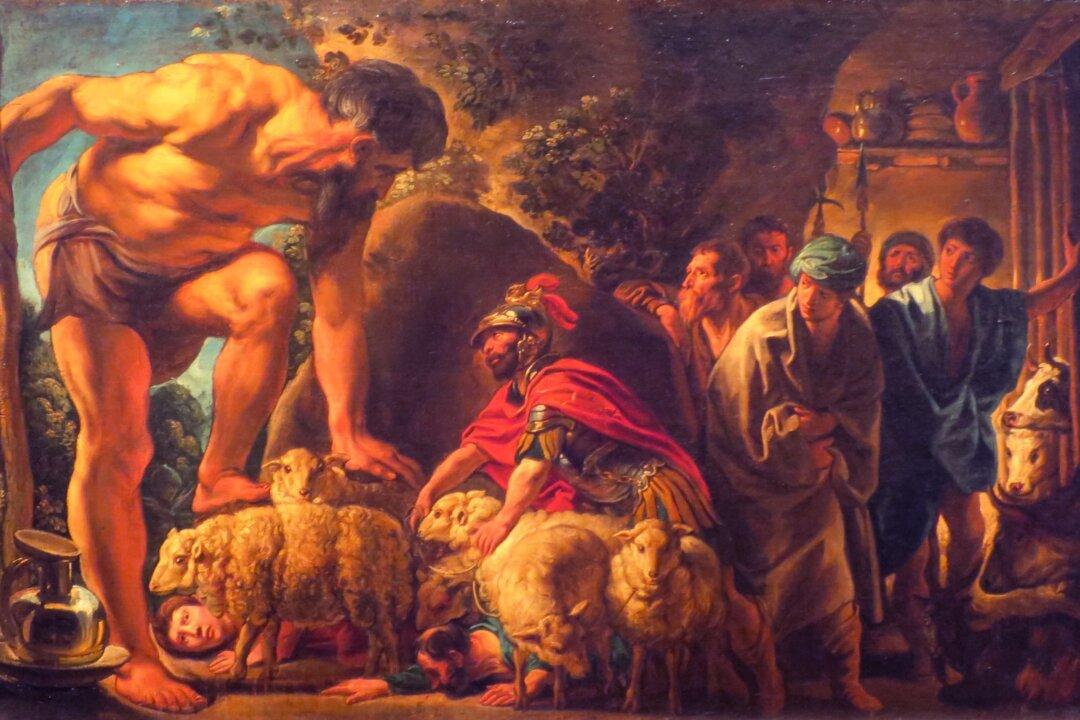In Part 2 of this series of articles, we saw Odysseus barely managing to escape from the land of the Lotus-Eaters, or in Enneagram personality-speak, from the sloth that can sometimes characterize the type Nine person.
We saw, too, that what seemed fairly innocuous compared with the sort of fighting and warfare that occurred at Troy was anything but innocuous: The addiction to ease and a pleasant, nonconfrontational sort of lifestyle sapped the will to achieve anything and also blocked the crew’s ability to find their way home. Home is where the soul of a human being finds its own true beauty and realizes its full potential.






